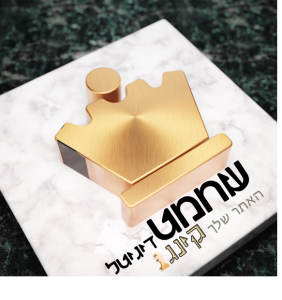Why must one feel gratitude?
Why must one feel gratitude?
Why must one feel gratitude? We must take nothing for granted and view everything as a gift. The ability to show gratitude and appreciate kindnesses that one receives is one of the foundations of serving Hashem.
In this week’s Parashat Vaera we read of the occurrence of the first seven of the Ten Plagues. God tells Moshe to instruct Aaron to initiate the first three of the Plagues Rashi writes that Aaron, not Moshe, initiated the plagues of blood and lice because Moshe was not to hit the Nile or the sand for he was required to feel a debt of gratitude to the river and the sand. The Nile had saved him when he was an infant in a basket and the sand had saved him when he buried the Egyptian that he had killed.
Hakarat hatov – recognizing good that is done for us is not merely an obligation that we owe to other people. One must feel hakarat hatov towards any animal, plant or inanimate object from which one derives benefit.
In one case we learn that one must feel gratitude even to a bathhouse! In the commentary to the Talmud on Bava Kamma (92b) the Shitah Mekubetzet it is recorded that the Rif – R’ Yitzchak Alfasi (Morocco (4773-4863; 1013-1103) refused to judge a case involving the bathhouse where he bathed. Since he owed a debt of gratitude to that bathhouse, he did not want to run the risk of ‘slighting’ it while determining its fate. Why must one feel gratitude even to a bathhouse? Because the ability to appreciate kindness that one receives is one of the foundations of serving Hashem. The Midrash says, “If one denies his friend’s kindness, he will inevitably deny Hashem’s kindness.” for everything we receive is a gift – ultimately from God: the agent of our beneficence is irrelevant.
Indeed, the first recorded sin involved Man’s denying an act of kindness. This occurred when Adam defended his eating from the Tree of Knowledge with the words (3:12): “The woman whom You gave to be with me – she gave me of the tree, and I ate.” Instead of recognizing that Hashem had performed a kindness for Adam by creating Chavah, Adam instead blamed Hashem for his own sin.
The Hebrew for gratitude is “recognizing the good” from wherever may come. The least we can say to our benefactor is “thank you”. Once it was popular to use the form “much obliged”. Much obliged means that whatever was done is appreciated and that the beneficiary now owes the other a favor. Most people do not wish to return a favor or to feel obliged to someone or something and hence the instinctive lack of gratefulness of people should not surprise us. Hence, the powerful statement of the Midrash “If one denies his friend’s kindness, he will inevitably deny Hashem’s kindness.” This must serve as an incentive for us to learn to always be obliged.

 שחמט דיגיטל
שחמט דיגיטל